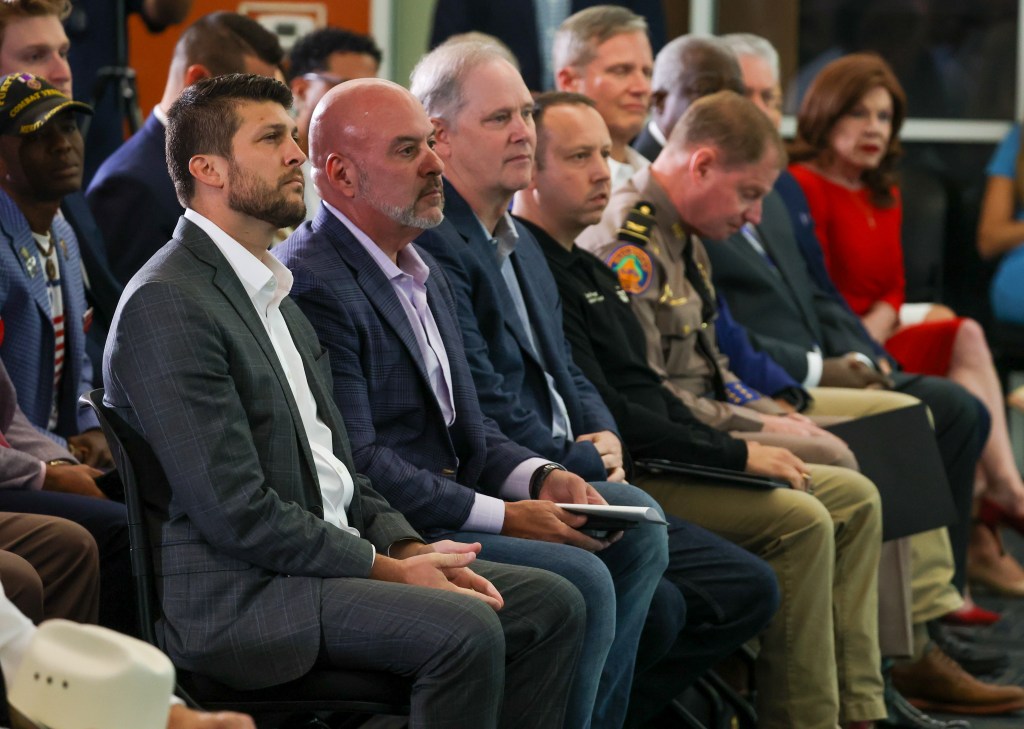Normally, when the state finalizes a big environmental-land purchase — particularly one that would save sensitive land from condo-fication and expand the state’s limited number of coastal parks — it’s cause for celebration.
And there’s no doubt: The four acres that Gov. Ron DeSantis and members of the Florida Cabinet approved for purchase last week is a pretty piece of property, situated next to the city of Destin’s Norriego Point Beach park and close to another gem in the state’s parks system, Topsail Hill Preserve State Park.
So why are so many of the state’s past and current leaders — Republicans and Democrats alike — crying “boondoggle?”
Well, that starts with the price tag: $83 million. The math works out to a per-acre purchase price of more than $20 million. We could not find another land purchase in the state’s history that compares. Nor could Clay Henderson, a New Smyrna Beach conservationist who’s known as the father of Florida’s environmental-land purchasing program.
Next, the seller: Robert Guidry of Louisiana, through two companies he holds (Pointe Mezzanine LLC and Pointe Resort LLC). He’s a lavish campaign donor who has dumped buckets of money into the war chests of Florida Republicans, including $250,000 to one of Gov. Ron DeSantis’ political committees. Quite curiously, he also gave so much money to local candidates in Okaloosa County (where Destin is located) that he was the No. 1 political donor in local races according to the Midbay News.
The sale prompted a long story this weekend in the Tampa Bay Times, which reached out to more than a dozen leading conservation experts in the state, including Gov. Jeb Bush’s head of environmental protection. Each and every one of them was appalled.
Then there’s the weird path it took to come before the Cabinet. The budget passed last spring by the Legislature included a directive to buy this property specifically, as part of the Florida Wildlife Corridor. This ambitious project should eventually sprawl throughout the state, preserving habitat for animals and birds while saving remaining acres of wild lands for future generations. But it didn’t include the Destin property in its plans.
When lawmakers passed the budget (in late June) it didn’t include a price tag for this four-acre property — just a total figure of $163 million for all the corridor land the state plans to buy this year. When the purchase came before the Cabinet, it was again bundled with other properties. When Blaise Ingoglia, appointed by DeSantis to fill the term of chief financial officer after Jimmy Patronis left for Congress, inquired about the Destin land, DeSantis indicated he wasn’t hospitable to a motion to split the properties into separate line items — to which Ingoglia meekly acquiesced.
(And yes, this is the same Blaise Ingoglia who took the time to jeer at a $6,000 annual appropriation for Orlando’s poet laureate. Apparently lavish spending isn’t worth objecting to when it’s millions instead of thousands, and the person pushing the purchase is the one who gave Ingoglia his job.)
Under Florida law, before buying land the state is supposed to acquire multiple appraisals that make sure it’s paying a fair price. Apparently, there was no time for such tomfoolery with this purchase. Instead, they used an appraisal that Guidry provided. Curiously, that appraisal had the land’s valuation leaping from what he paid for it — less than $8 million in 2016-2017 —to $55 million. That means the state paid a price that’s a third higher than the value Guidry’s assessment claimed.
But wait. There’s more. Henderson — who says he’s been studying the purchase compulsively for the past week — discovered that 1/10th of this property is land the state already owns. That’s because it’s submerged land. State officials might argue that they included that land in order to secure the system of docks and boat slips Guidry’s companies constructed. If so, that could be the most expensive wood the state has ever purchased: Officially, the $83 million includes $13 million for those structures. Yet there’s no indication in the Cabinet paperwork that the state intends to keep those docks in place. And a busy marina is hardly hospitable to wildlife, further undermining the rationale for buying the land.
So let’s get this straight, Floridians: This purchase was rammed through under circumstances that, quite frankly, stink. The experts the Tampa Bay Times interviewed pointed out that properties purchased for the wildlife corridor are supposed to go through an extensive environmental evaluation as well as carrying a price tag that makes sense. This property is unlikely to be used as significant habitat for anything but the humans who will park their cars there, and then trudge across the sand to get to the beach.
And it seems near-certain that the state wildly overpaid — especially since the property is situated in an area that is highly likely to flood the next time a major hurricane hits that part of the state.
Think about this the next time Ingoglia, DeSantis or Attorney General James Uthmeier visit Central Florida on another crusade to proclaim how stupid and wasteful our local cities and counties are. Maybe show up to their high produced press conferences and bring them a little present — a baggie or bottle of beach sand, tied up with a price tag that approximates the per-grain price state leaders just squandered, on a piece of property it never needed.
The Orlando Sentinel Editorial Board consists of Opinion Editor Krys Fluker, Executive Editor Roger Simmons and Viewpoints Editor Jay Reddick. Contact us at insight@orlandosentinel.com

